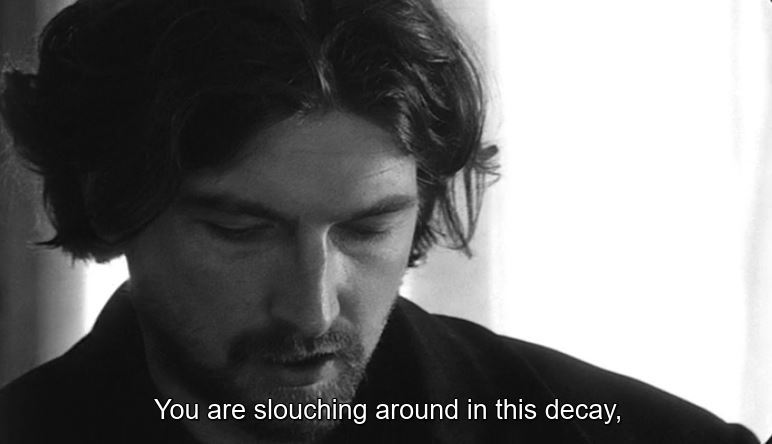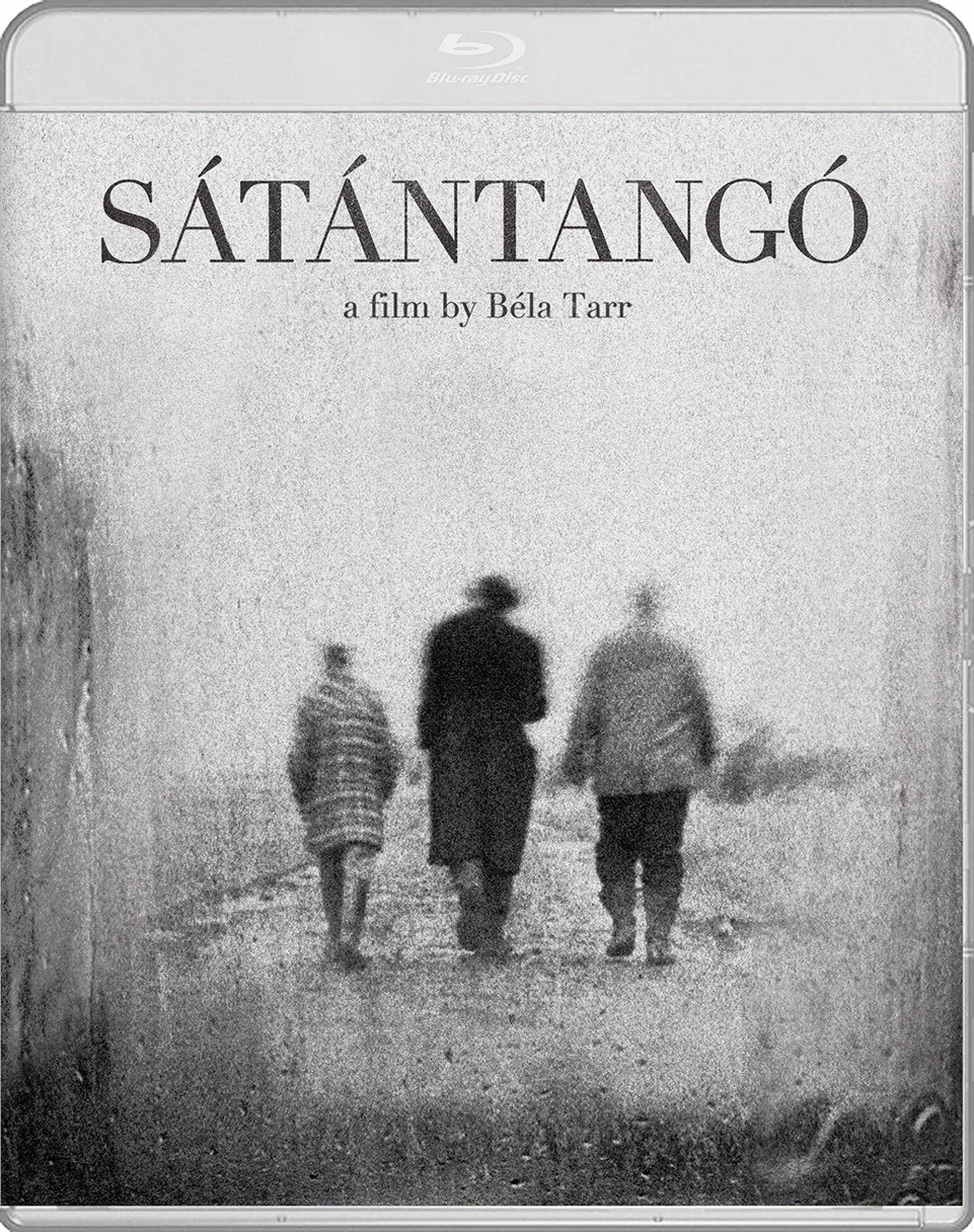
They hear that the smooth talking Irimias and his sidekick Patrina, who have been believed dead by the town, are on their way back to town. Schmidt we find out is planning to run away with the money the town has made over the past year but comes home and is confronted by Futaki who has suck out only to come right back and knock on the door. The first section begins by showing Futaki having an affair with Schmidt's wife. The film follows the people of the farm in essentially three sections.

Who else but Bela Tarr would try such a thing and who else but Bela Tarr could make it work so well. The camera makes what has to be one of the most incredible pans in cinematic history panning to the left for most of the ten minute scene. The film opens with literally a 10 minute shot following a herd of cows wandering through a seemingly rundown farm town.

There are two scenes where main characters walk with the camera following as multitudes of trash blow along with them in the wind, creating a somehow hypnotic effect. The land is muddy and the buildings are in shambles.

The scenery is at once withered and ugly, yet compellingly beautiful. Complied of only 150 shots, many of which last for over 10 minutes, Tarr and his cinematographer manage to create a hypnotic and beautiful depiction of a desolated communal farm in post-communism Hungary.

This is one of the most incredible films I have ever seen. That rat-faced bastard has ruined me for good.” He knew that by evening, when he had finished packing – because until then nothing else could go in the van apart from the coffin, not next to it, not behind it, not on the seats, anywhere – once he had carefully locked all the doors and windows and was driving to town in his battered old Warszawa, cursing all the while, he wouldn’t be looking back, wouldn’t turn around once, but would vanish as fast as he could and try to wipe all trace of this miserable building from his memory, hoping it would sink from sight, and be entirely covered up, so that not even stray dogs would stop to piss on it that he would vanish precisely the way the mob from the estate had vanished, vanish without a last look at those moss-covered tiles, the crooked chimney, and the barred windows because, having turned the bend and passed beneath the old sign indicating the name of the estate, feeling elated by their “brilliant future prospects”, they trusted the new would not only replace the old but utterly erase it.Satantango (1994) **** Satantango, Bela Tarr's 1994 7.5 hour masterpiece is incredible first and foremost in that despite its length and multiple shots of literally nothing taking place it is never, I repeat, never boring.


 0 kommentar(er)
0 kommentar(er)
